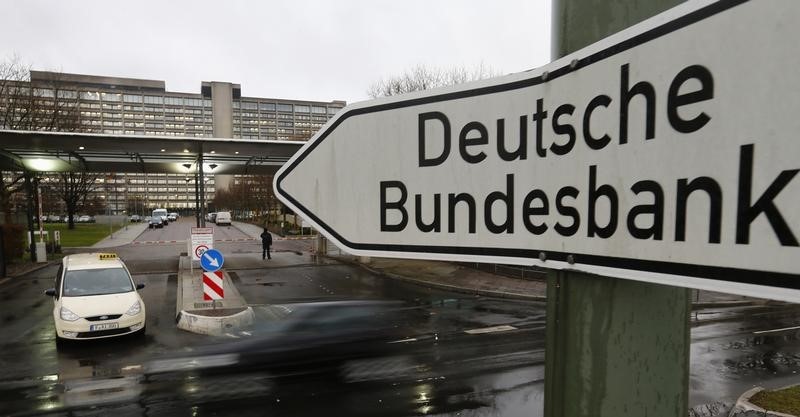(Bloomberg) -- Germany’s central bank warned that Europe’s largest economy could be about to tip into recession, adding to the pressure on policy makers to ramp up support.
The Bundesbank said in its monthly report that German output will remain “lackluster” in the third quarter and “could continue to fall slightly”. That would be a second straight quarter of contraction -- the typical definition of a recession -- after a 0.1% decline in the April-June period.
The prognosis follows weeks of worse-than-expected German data and meager corporate earnings reports. That has dragged down the rest of the euro area and prompted the European Central Bank to consider extra monetary stimulus. The government has also signaled that it might be willing to step up spending should the crisis worsen.
The Bundesbank cited persistently weak momentum in industry as a reason for the continued weakness, and said it’s unclear whether domestic demand might take a hit as well.
Up until a week ago, economists surveyed by Bloomberg foresaw growth of 0.2% in the current quarter, but since then big-name institutions including Deutsche Bank (DE:DBKGn) have lowered their projections. The concern for many analysts is that continuing global trade tensions will prolong the downturn in manufacturing and eventually feed through to the still-strong services sector.
“Future developments will hinge on how long the present economic dichotomy lasts and which direction it takes once it dissolves,” the Bundesbank said. “As things currently stand, it is unclear whether exports and, by extension, industry will regain their footing before the domestic economy becomes more severely affected.”
The Bundesbank added that the slowdown observed over the last year has already left tracks on the labor market, with employment rising at a “considerably slower” pace in the second quarter. Wage growth was also “noticeably smaller.”
The most recent contraction in total output was driven particularly by sinking demand from abroad, according to the Bundesbank. Exports “were down substantially,” as preparatory Brexit plans ahead of the U.K.’s initial exit date at the end of March prompted companies to stock up inventory in the first quarter.
Other temporary effects that boosted growth at the start of the year such as strong demand for construction and automobiles also dissipated.
Euro-Area Prices
In a separate report, euro-area inflation came in weaker than initially reported, raising pressure on ECB policy makers to consider more stimulus in September. Eurostat revised its July estimate for consumer price growth to 1%, down from a reading of 1.1%.
Governing Council member Olli Rehn said in an interview with the Wall Street Journal last week that the ECB should come up with an “impactful and significant” stimulus package at its next meeting.
